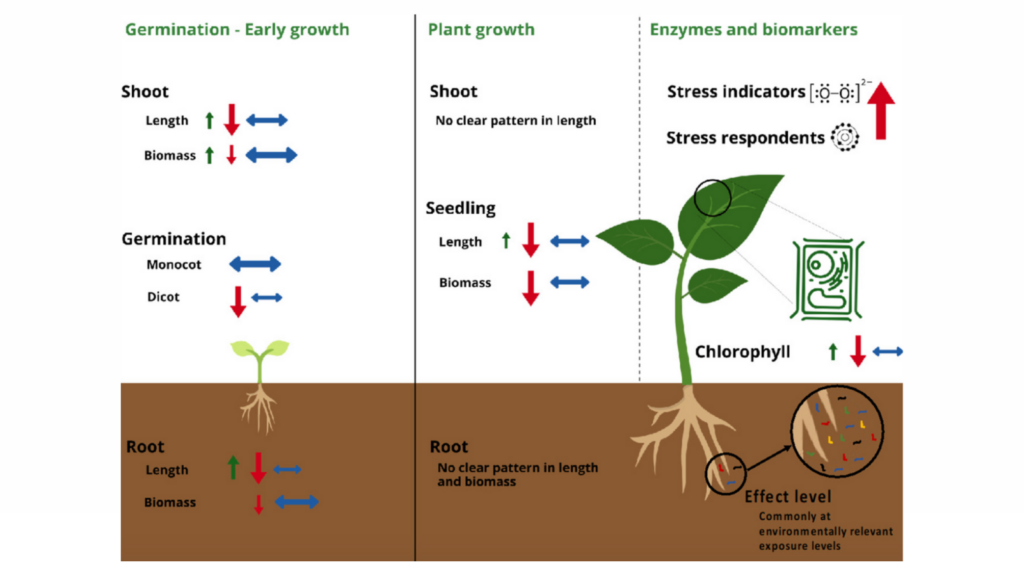
Article written by: Laura J. Zantis, Caterina Borchi, Martina G. Vijver, Willie Peijnenburg, Sara Di Lonardo, Thijs Bosker
Abstract: Over the last years there has been significant research on the presence and effects of plastics in terrestrial systems. Here we summarize current research findings on the effects of nano- and microplastics (NMPs) on terrestrial plants, with the aim to determine patterns of response and sensitive endpoints. We conducted a systematic review (based on 78 studies) on the effects of NMPs on germination, plant growth and biochemical biomarkers. This review highlights that the majority of studies to date have used pristine polystyrene or polyethylene particles, either in a hydroponic or pot-plant setup. Based on these studies we found that effects on plants are widespread. We noted similar responses between and within monocots and dicots to NMPs, except for consistent lower germination seen in dicots exposed to NMPs. During early development, germination and root growth are more strongly affected compared to shoot growth. NMPs induced similar adverse growth effects on plant biomass and length in the most tested plant species (lettuce, wheat, corn, and rice) irrespective of the polymer type and size used. Moreover, biomarker responses were consistent across species; chlorophyll levels were commonly negatively affected, while stress indicators (e.g., ROS or free radicals) and stress respondents (e.g., antioxidant enzymes) were consistently upregulated. In addition, effects were commonly observed at environmentally relevant levels. These findings provide clear evidence that NMPs have wide-ranging impacts on plant performance. However, as most studies have been conducted under highly controlled conditions and with pristine plastics, there is an urgent need to test under more environmentally realistic conditions to ensure the lab-based studies can be extrapolated to the field.
